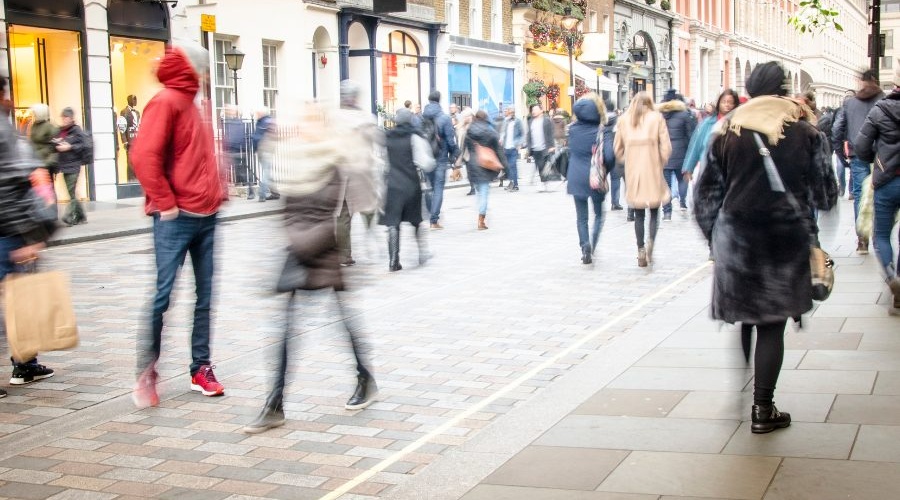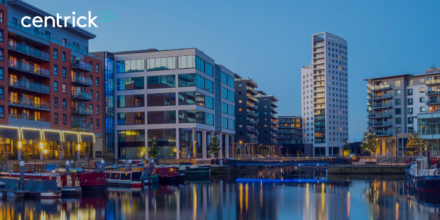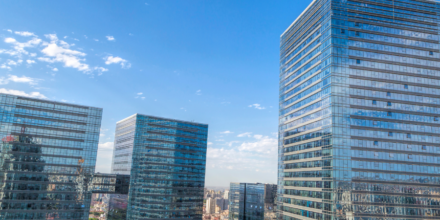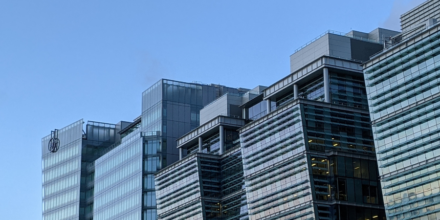Why did high street retail experience a decline?
With the pandemic keeping people indoors and encouraging retailers to focus on digital strategies to better reach their customers, the high street as we knew it has experienced a state of decline. As people became acclimatised to resorting to online methods of shopping, and still feared the risks of venturing outdoors to retail outlets with the pandemic still rife, the high street remained a less popular option for consumers. Even worse, the post-pandemic fiscal decline left many consumers with less disposable income, thereby reducing the appetite for non-essential retail products and contributing to downfall of high street retail.
Why is high street retail popular?
This isn’t to say that the high street retail format is intrinsically flawed: in fact, it comes with many benefits for consumers. High street retail offers customers a tangible experience that far transcends what an online listing can show: fashion retailers allow customers to try on their clothes, perfumers allow customers to smell their wares, and homeware stores give purchasers the opportunity to observe materials and quality in a way that digital advertisements simply cannot do. Better yet, physical storefronts can offer a supreme customer experience with in-store experts being able to give immediate responses to product queries, without the everlasting wait or lag that frequently comes with online customer service teams. In this way, online retail offers convenience, but cannot replace the experience offered by high street retail.
What’s more, these establishments are necessary components of towns and cities as they prop up the local housing market, adding value to nearby residential properties. A study by Savoy Stewart unveiled that premium high street retailers can boost nearby property values by up to 42% based upon an evaluation of residential values in Hertfordshire. Establishments such as Zara, M&S and Carluccio’s were among the retailers with the greatest impact on residential property values.
Is the commercial retail sector recovering?
Since the easing of lockdown restrictions in 2021, high street retail has seen an impressive resurgence, with the future of this sector looking exceptionally bright. Retail is starting to look resoundingly buoyant, with in-store sales accounting for 54.7% of purchases in the first half of 2022, showing its returning popularity despite the rise of e-commerce. This demonstrates the importance of customer service and tangible experiences for consumers.
Fashion retailers are resurging particularly fast, and saw a significant rise in the popularity of physical gift cards, which made up 75.8% of gift cards sales. Both high-end and budget fashion has become increasingly buoyant, with Matalan reporting revenue growth of 29% YoY, which exceeds their pre-pandemic revenue. Mid-range retailer Quiz saw an uplift of 62% in 2022 as well, indicating that fashion as a whole is resurging, not just specific brands.
Beyond fashion, a variety of high street retailers are beginning to put their bricks and mortar expansion plans into action – budget supermarket Aldi has plans to open an additional 55 stores across the UK. Additionally, The Fragrance Shop have plans to open over 100 new storefronts before 2025, demonstrating that it’s not just essential stores such as supermarkets that are experiencing a revival, but the public are still splurging on non-essential consumer goods. As a result of such faith being placed in the commercial retail sector, new leases are on the rise: Savills noted that commercial rents have experienced 8.1% growth over Q2 of 2022 and show no signs of slowing. In fact, 40% of e-commerce businesses in Europe plan to open a physical store, which is set to drive more revenue into commercial retail, making prime high-street bricks and mortar storefronts more desirable.
What is the High Street Revival Initiative?
In order to keep the high street going in its current positive trajectory, some councils are using a range of initiatives to support smaller businesses, appeal to larger brands, and encourage the revival of the 21st Century UK high street.
- High Street Buyout Fund: Allows local communities to buy out any open units in key locations to bring long-term resilience to high streets and town centres
- Business Rates: A reduction in business rates for small and medium sized businesses so they can retain more of their profit and use it for accelerated long-term growth
- Young Traders: Encouraging SME’s onto the high street with reasonable leases and community support to add innovation and variety, creating a vibrant high street
- Help To Grow: Government scheme for business leaders that provides mentoring for those looking to expand into high street retail, as accredited by the Small Business Charter
- Platform: An online programme that makes town centre properties more accessible to communities, and aiming to reduce the existing statistic of 14% of high street units being vacant
Looking to become part of the high street resurgence?
Centrick Commercial are industry leaders in sourcing, leasing, and selling commercial units – whether you are a high street retail owner looking to lease or sell your unit to the best possible purchaser, or are on the hunt for your next town centre unit for your new or growing business, we can help. Contact our team of experts using the form below or check out our range of commercial listings here.









